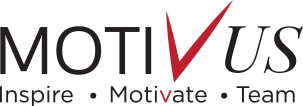Revenue is for Everyone.
Revenue is for Everyone.
1984, my first management job, and I use the term management quite loosely as I had no idea what I was doing. I was in the Lincoln room of the Key Bridge Marriott with Basil, one of my housemen. We were setting a U-Shape for 15, with an overhead projector, screen and 2 flip charts.
Basil was an immigrant from Africa, a pharmacist back home. I don’t know what brought him to the States, which as his manager I now know is something with which I should have made myself familiar. I recollect he had a family- very very sweet diminutive guy who spoke wonderful English with a sort of British accent. Smart guy. I liked him very much, though I resented the pace of his work.
We had several more room turns and then several big sets for the next day- lots of work ahead- and I was prodding him to clean the chalk tray. Basil was not at that moment into the niceties; rather he was working with an approach that didn’t have quality high on the priority list. In our conversation, I offhandedly mentioned that the flipchart for this group cost $17.50 per day. That stopped him. He asked “say that again”.
I said, “yep, $17.50 for a big pad of paper, and then $40 for the Overhead, $15 for the screen, $150 in room rental and about $30 pp for lunch and coffee breaks. They will spend around $600 for this meeting.
I was making $13,000/year in that job and working 70 hours a week. I don’t recall what housemen made-maybe $4 per hour tops. So $17.50 was money to both of us. We would both work weeks to make that much money, albeit pricing today wound be so much higher.
Anyway, letting Basil know what these customers paid opened his eyes to why we needed to mind the quality. He got it.
That was my introduction to the value of sharing financials.
Another vignette, then I’ll move on to specifics of what I suggest managers do.
One of my sons works for a small privately held company that does documentation work for legal firms. I’d guess 30 to 50 employees though I’m not really sure.
Christian’s language is peppered with two elements when he talks about work, which is all the time. That fellow, and I love him for that and everything else, talks about work a lot. The two elements he talks about are revenue and how important whatever client he is working on now is.
Christian always knows where his company is in terms of revenues MTD. He knows what the company does in an average month; he knows when they are on track or when they are behind. And its not because someone is telling him. Christian knows because he is tracking it. He wants to know. Heck, he reviews bills toward the end of the month to ensure all billing gets closed so a month’s revenues doesn’t bleed into the next. He wants to maximize every month. He could tell you in great detail where the revenue is coming from and how sticky future business is from this month’s clients.
In fairness, I should mention here that he does have small bonus potential, so there is that motivation, and that is not to be forgotten. I have always believed that rewarding revenue growth is hugely important, and yet I think even I, with that mindset, sometimes underestimate its value. You reward people for any behavior, whether good or bad, and you will get more of it. Punish a behavior you don’t want, and you get less of it. Its not that hard folks. Incentives work. I repeat, incentives work.
Yet in Christian’s case, there is more than the bonus element in play. I am sure of it. As he recounts conversations he has with colleagues, I can tell they are discussing as a matter of course what they can do to grow the business. This guy running the company- never met him- has somehow gotten the team, at least those in Christian’s orbit, to buy in on striving for bigger revenues, and not all of them have bonus potential. And it doesn’t seem to be fear which animates them. They don’t seem worried that hours or shifts are at risk. They evidently have sincerely-held desires to grow revenues, and as a result are always conversant on the current status of revenue MTD.
In your work world, there are statistical mile markers you can and should be using. I’m not suggesting you inundate with stats, but pick two or three.
- You manage a Five Below store. Do our employees know what a good revenue day is?
- You’re a phlebotomist with the Red Cross working on blood drives. Do you know how many units of whole blood your team collects a day?
- You work the drive thru window at Wells Fargo- do you know how many transactions you handle per hour?
What gets measured gets done.
If you embrace this adage, then beware what you measure. Measure the right things!! Do you measure your salespeople on how many calls they make or on how much revenue they generate? Are they both important? Yes. Are they equally important? No.
Save your powder. Measure the important stuff. Two or three measurements at a time.
Running a breakfast restaurant and you have fresh squeezed OJ with a great food cost? Put up a poster in the back with every server’s name- whomever sells the most every day gets a $10 Starbucks card. Watch the OJ start to move. You have nice revenue on the books before people even select their breakfast item.
An element many successful managers possess is that they empower colleagues. Knowledge can be empowering. Your employees want to know what is going on in their business. They want to feel involved; feel connected. They want to sit at the dinner table and share how work is going. Everyone wants to feel important- just look at all the BMW’s and Jordan shoes. And people want to be part of a bigger purpose.
If you work for a big company, try this. Go to your company’s investor relations page and see if there is an earnings call listed. Often there is an 800 number and ANYONE can call to listen in. Perhaps have your team listen in together. If some of the information is foreign, assign someone to learn about it and teach the team. Learning together is a great shared experience; a great team building activity. Listening to your CEO tell the Street about the company’s performance can be interesting and validating.
I wrote earlier that Christian has two main work topics and I only delved into the revenue angle. The other has to do with the importance of clients, and it is what first encouraged me about this job of his. As I mentioned, the business does documentation work for legal firms, and my first impulse was to encourage Christian to seek a position with more transferrable skills. What if this company fell on hard times? His mom is an RN- can work anywhere. As a travel and tourism guy, I felt I could get work in just about any location- not married to a particular employer. My older son- knows everything there is to know about the corporate tax world and is somewhere in the M&A arena- he’ll always have a chair. But this job of Christian’s- did it provide him career flexibility? I was not sold.
Then he started talking about clients. If he was working a big job, then of course it had to be perfect, because if you mess up a client’s big order, they stop using you. Or it was a first time client……well, it had to be perfect because if you do not get their first order right then they will not come back. Another was a client who just gave them the small projects, and to you can see where this is going. It was IMPERATIVE to get their small jobs right so that you could win their trust and get the big orders.
In brief, every customer was critical. What a skill my son was taught! If he focuses on clients, he’ll always be employable.
Revenue, my friends, forgives all sins. Never forget that. Revenue forgives all sins. Drive revenue, and you can spend. Drive revenue, and margins can be managed. Drive revenue, and you can order uniforms, or supplies, or pay little bonuses. Maybe even big bonuses. Revenue drives Wall Street multiples. Revenue protects jobs. Revenue forgives all sins.
Revenue is for Everyone.





